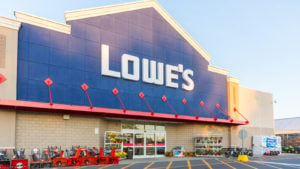
When it comes to investing in dividend stocks, some investors focus mainly on yield. This can sometimes lead to investing too heavily in stocks that, while offering a high yield, could end up becoming dividend traps, whether from cutting/suspending their dividends, and/or from shares declining in value, outweighing the large payouts. Other investors focus on dividend growth. They seek to buy and hold stocks with a history of increasing their payouts steadily over time. This strategy also has its flaws.
Namely, there are many dividend-paying stocks that are able to raise payouts above their rate of earnings growth for some time, but end up hitting a wall once their payout ratios start approaching the 100% mark.
With this in mind, a strong dividend investing strategy may be to focus on high-quality names that score well on several dividend-related metrics. In other words, besides yield and dividend growth history, payout ratios/dividend coverage, as well as the underlying strength of the company’s business, should be taken into consideration, as well. Applying this filter brings us to names like these seven top dividend stocks.
AbbVie (ABBV)

Pharmaceutical giant Abbvie (NYSE:ABBV) is well-regarded as a dividend stock for income. Not only does ABBV offer investors a moderately-high dividend yield (3.94%), but it’s also been increased for many years. Over the past five years, the average dividend growth rate for ABBV stock has been around 12.3%. With a payout ratio of 46.3%, considered healthy by dividend-focused investors, AbbVie’s dividend policy is likely sustainable, even as sell-side forecasts call for sluggish earnings growth in the coming year.
As InvestorPlace’s Alex Siriois recently argued, the decline of Humira (Abbvie’s flagship drug) has been what has driven the recent slump in the company’s results. However, with growing sales for newer drugs like Rinvoq picking up the slack, Abbvie is well-positioned to experience re-accelerated earnings growth. This, of course, bodes well for both ABBV’s future payouts and future stock price.
Automatic Data Processing (ADP)

Take a look at recent commentary regarding Automatic Data Processing (NASDAQ:ADP), and you’ll see plenty of articles arguing that the stock is overvalued. However, while Automatic Data Processing’s current valuation (27.5 times earnings) is a bit rich, this premium multiple for ADP stock may be sustainable. That’s thanks to the company’s high projected earnings growth.
Along with the potential for this venerable, deep-moat business to continue growing earnings, ADP is also likely to maintain its decades-long streak of annual dividend growth. ADP’s 1.99% dividend has increased by an average of 13.7% annually over the past five years. With its strong potential to keep producing above-average returns, consider it one of the top dividend stocks.
Chevron (CVX)

Among major integrated oil and gas stocks, Chevron (NYSE:CVX) may be your best choice, if you’re looking for income and stability. What makes this big oil name the best of the bunch when it comes to its qualities as a less-risky dividend stock?
For starters, CVX stock offers a higher dividend yield than comparable U.S.-based big oil stocks like Exxon Mobil (NYSE:XOM) and ConocoPhillips (NYSE:COP). XOM and COP’s forward yields are 3.31% and 1.74%, respectively.
Not only that, besides offering a higher yield, CVX is a “Dividend Aristocrat” – a company that increased its dividend for more than 25 years. In fact, Chevron has 35 years of dividend growth under its belt, with payouts increasing by an average of 6% annually over the past five years. If you’re bullish that crude oil’s recent rebound will continue, consider CVX.
Lockheed Martin (LMT)

Lockheed Martin (NYSE:LMT) is another name that belongs on your list of blue-chip dividend stocks. Shares in this defense contractor have yet to attain dividend aristocrat status, but they’re getting close. Hitting 20 years of consecutive dividend growth this year, LMT is just five years away from joining the club.
However, that’s not the sole reason to add LMT stock to your portfolio. The main reason to do so is the fact this stock is another name that could deliver above-average total returns, through both growth and yield. Rising geopolitical tensions bode well for Lockheed Martin’s future results. Thanks to strong weapons demand, the company recently raised its full-year guidance.
Growth from this tailwind stands to be boosted by LMT’s dividend. The stock today has a forward dividend yield of 2.67%, and LMT’s payout has increased by an average of 8.6% annually over the past five years.
Lowe’s (LOW)

If steady dividend growth is a high priority, look no further than Lowe’s (NYSE:LOW). This home improvement retailer stock is not just a “Dividend Aristocrat,” but also a “Dividend King.” As I’ve noted previously, LOW has increased its dividend 59 years in a row.
Cash dividends for LOW stock have really increased over the past five years, rising by an average of nearly 20% annually. Sure, even as the company currently pays out just 30.2% of its earnings as dividends, future dividend growth may come at a far less rapid pace. Yet in the event this happens, Lowe’s shares could still continue to perform well.
Between the implementation of its “total home strategy” for organic growth, coupled with the company’s aggressive use of stock buybacks, Lowe’s has a strong chance of experiencing earnings growth in the coming years, with shares likely to move higher in line with this growth.
PepsiCo (PEP)

PepsiCo (NASDAQ:PEP) is a strong choice among dividend stocks in the consumer staples sector. Shares in the soft drink and snack foods behemoth just hit “Dividend King” status, and currently sport a forward yield of 2.84%.
Yes, the payout ratio for PEP stock is somewhat high, coming in currently at 65.2%. However, the company could keep raising its dividend, while at the same time not deviating too far above this payout level. Despite headwinds like inflation, Pepsico has managed to keep reporting strong “beat and raise” quarterly results.
With the inflation issue seemingly subsiding, PEP looks even more well-positioned to keep increasing its bottom line. Sell-side forecasts call for earnings growth of around 7.75% next year, and around 8.2% the year after that. This points to further dividend increases. Shares could also move higher in tandem with these increasing earnings.
UnitedHealth Group (UNH)

UnitedHealth Group (NYSE:UNH) has been one of the top large-cap growth stocks of the past decade. While the company has a moderately-sized dividend (1.51% forward yield), with dividend growth averaging 16.7% annually over the past five years, UNH’s payouts could increase at a faster clip than earnings, resulting in a higher yield over time.
Previously, I have pointed out that above-average earnings growth will lead to strong gains for UnitedHealth Group shares in the years ahead. Looking at the latest earnings forecasts, I stand by this past view. The company is expected to report double-digit increases in its earnings per share both in 2024 and 2025.
On the date of publication, Thomas Niel did not hold (either directly or indirectly) any positions in the securities mentioned in this article. The opinions expressed in this article are those of the writer, subject to the InvestorPlace.com Publishing Guidelines.





